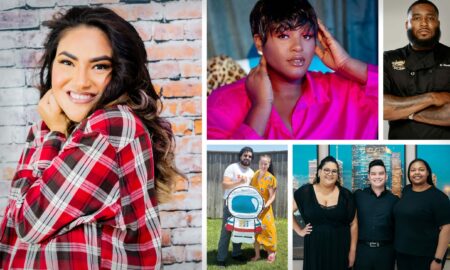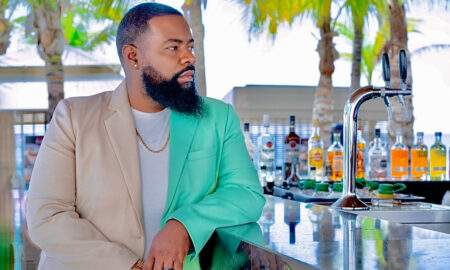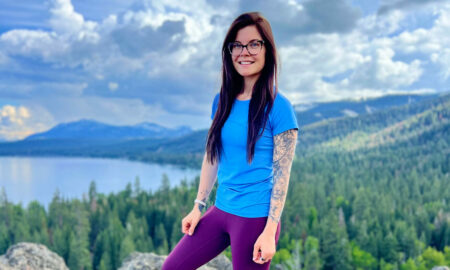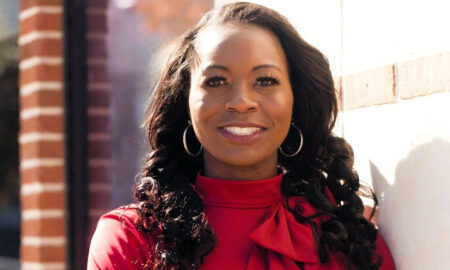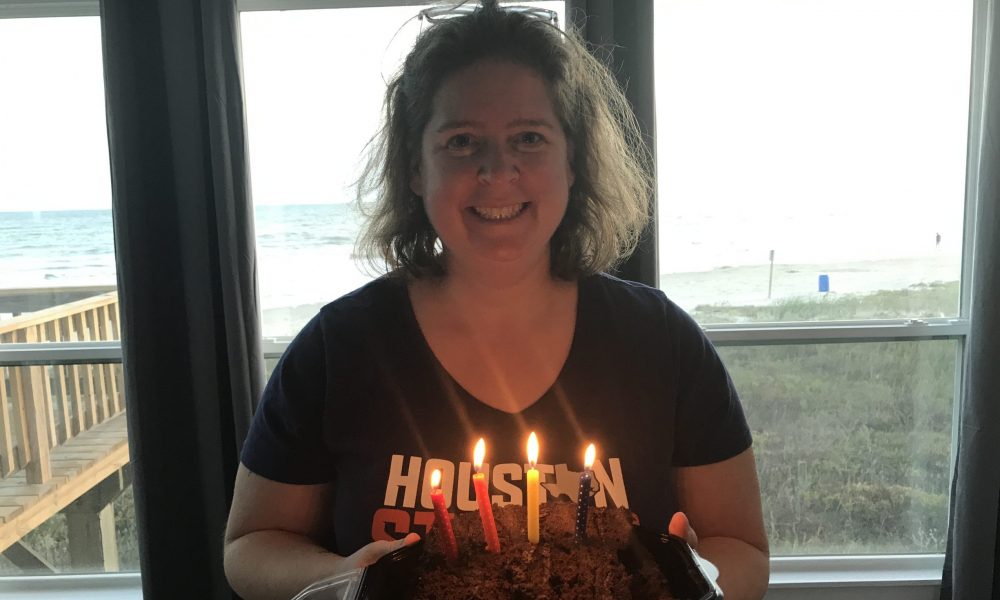

Today we’d like to introduce you to Lisa Levy.
Thanks for sharing your story with us Lisa. So, let’s start at the beginning and we can move on from there.
Growing up in a conservative middle class family in Houston, with parents who firmly believed in self-reliance and pulling yourself up by your own bootstraps, I never would have imagined the long and winding path that would lead me to the work I do now: working with individuals with a lived experience of homelessness and facilitating creative community-building that promotes interdependence between those who have been homeless and those who haven’t.
As a prep school student in high school, I wanted to be a doctor–this was a common choice of profession for many of my classmates (along with lawyer, scientist, business consultant, etc.), and I didn’t question this decision. In college (a small liberal arts college in New England), however, that dream was quickly squelched after taking my first science classes. I wasn’t very good at them, and I didn’t enjoy them. I ended up becoming an English major, graduating with honors, and beginning a years-long search for meaning that ultimately led me to Yale Divinity School in 2008.
I was an unlikely candidate for a graduate program studying theology, pastoral care, biblical literacy, and preaching–I grew up in a non-religious household with a Catholic mother and a Jewish father, neither of whom were practicing their faiths during my childhood–but I was hungry for God and hoping for answers to existential questions: who am I and what am I here on this planet to do?
During my second year of graduate school, I felt I found my answer when I ended up at an internship as a multi-faith chaplain at an inpatient unit at the Connecticut Mental Health Center, a state-funded psychiatric hospital where most of the patients had been homeless before entering the hospital and would be homeless again upon discharge. I fell in love with these patients, who were sick, marginalized, forgotten, isolated, and intensely lonely. They were also smart and funny, with strong faiths and hope (sometimes unrealistic) about their futures. I remained at CMHC for two years during graduate school and also worked as a chaplain at the psychiatric hospital of the New York-Presbyterian Hospital system. When I graduated from YDS in 2012, I accepted a nine-month chaplain residency opportunity at Yale-New Haven Hospital, a Level I Trauma Center. My hope was to complete the requirements necessary to become a chaplain at a psychiatric hospital in the Northeast.
However, my mother died right before I graduated, and, as an only child, I wanted to be geographically close to my father. So after completing my residency, I moved back to Houston, where I have been since 2013. There were no psychiatric chaplaincy jobs available, so I took a job working at SEARCH Homeless Services, a wonderful agency here in Houston. Eventually, I became the Spiritual Support Coordinator, where I acted as a chaplain to the clients experiencing homelessness, a liaison to SEARCH’s large and active Council of Congregations, and a Program Coordinator for a wonderful and effective evidence-based program called Coming Home–a six-month-long program that brought together a group of formerly homeless, recently housed individuals with a group of volunteers from local congregations for dinner, mentorship, and a therapeutic group focused on healing from trauma, working through grief and loss, anger management, and concrete life skills.
After working at SEARCH for almost six years, I left this summer to pursue my dream: founding my own nonprofit. Although it’s in its very beginning stages, Jude House will be a residence that brings together people with a lived experience of homelessness and people without that experience to live together in an intentional community. It’s a very exciting–and terrifying!–next chapter in my life.
Great, so let’s dig a little deeper into the story – has it been an easy path overall and if not, what were the challenges you’ve had to overcome?
The road has been long, winding, and bumpy, with a lot of blind spots along the way. There have been personal struggles as well as professional ones: my mother, one of my closest friends, died suddenly at the age of 59 while I was in graduate school. Eight months later, my best friend and roommate was diagnosed with Stage IV cancer, and I became an integral part of her caregiving team, even as I was the chaplain on the Oncology Unit at Yale-New Haven Hospital (despite a grim prognosis, she is now doing great). Professionally, the decision to move back to Houston to be closer to my father was a difficult one: I knew that I had a much better chance of getting the type of work I wanted–chaplaincy at a psychiatric facility or homeless shelter–in New England than in Houston for a variety of reasons. When I finally did move back, I took a job working with the people I loved–people experiencing homelessness–but the original position was not initially in my field of expertise (chaplaincy), and I didn’t know if I would ever be able to return to the kind of work for which I felt the most suited. And the seed that was to become the vision of my nonprofit–Jude House–was planted ten years ago during my first year at Yale Divinity School, but fear of inadequacy and lack of confidence kept me from pursuing my dream until very recently.
My best advice is to stay humble, learn everything you can in whatever capacity you can, persevere, and remember that you are where you are for a reason, even if that reason is to learn what you DON’T want to do. One of my touchstone quotes is from Calvin Coolidge: “Press on–nothing can take the place of persistence. Talent will not; nothing is more common than unsuccessful [people] with talent. Genius will not; unrewarded genius is almost a proverb. Education will not; the world is full of educated derelicts. Perseverance and determination alone are omnipotent.”
Please tell us about Jude House – what should we know?
The mission of Jude House–the nonprofit I am in the process of starting–is to provide a safe home where community happens, healing is welcomed, and love is the outcome. The vision for the house is for people with a lived experience of homelessness to live alongside people who haven’t experienced homelessness in an intentional, creative and mutually transformative community. As far as I know, this type of community has not been attempted anywhere in the United States.
In a pull-yourself-up-by-your-bootstraps society, the last part of our mission statement, “love is the outcome,” is radical and countercultural. Jude House is not a time-limited program where people are expected to stay for a limited time to “get back on their feet.” No one is expected to maintain employment while living at the house–although if they would like to find employment and have the ability to work, our case manager will work with them to find an appropriate job. Jude House is a potentially permanent residence for people who want to live a different kind of life–a life not marked or defined by stigma and isolation but defined instead by the nonjudgemental love and acceptance and trust one might never have experienced before. I have witnessed first-hand the potential for mutual transformation in these encounters between people who have been homeless and people who have had very different life experiences, and it can be truly miraculous. Jude House will provide a safe space for these encounters to happen with the goal of the transformation of lives, consciousness, and love.
When I tell people I work in homeless services, I generally get one of two reactions: “How could you possibly work with such a difficult population?” or “Isn’t it true that many homeless people want to be homeless?” First, while people experiencing homelessness have unique challenges, every human being, no matter their circumstances, deserves to be treated with dignity, respect, and compassion. Second, no child thinks, “I want to be homeless when I grow up.” This is not a dream life for people who don’t like to live by the rules; it is an unimaginably hard life rife with circumstances I wouldn’t wish on my worst enemy. No one wants to be homeless, and no one deserves it.
We’re interested to hear your thoughts on female leadership – in particular, what do you feel are the biggest barriers or obstacles?
I am in a field dominated by women, and I have been lucky enough to have wonderful women who have mentored me, taught me, and helped me develop the leadership skills I need to succeed in the nonprofit world.
Contact Info:
- Address: 1919 Decatur Street
Houston, Texas 77007 - Website: www.judehousehouston.org
- Phone: 713-369-0962
- Email: llevy@judehousehouston.org
- Instagram: @judehousehouston
- Facebook: https://www.facebook.com/JudeHouseHouston
- Twitter: @JudeHouseTX






 Image Credit:
Image Credit:
Marathonfoto.com (for the picture from the Houston Marathon)
Suggest a story: VoyageHouston is built on recommendations from the community; it’s how we uncover hidden gems, so if you or someone you know deserves recognition please let us know here.

